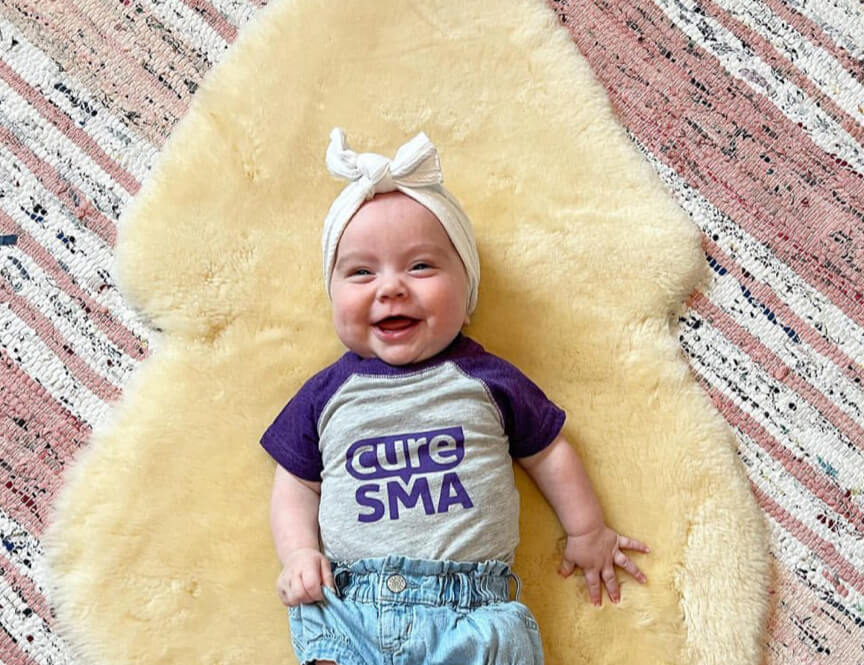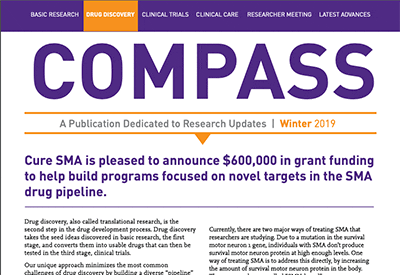We want you to know that Cure SMA continues to be here for the entire SMA community. We remain vigilant in monitoring and responding to your needs, as your health, safety, and well-being are always our top priority. The following FAQs are designed to help address continued concerns expressed by members of the SMA community about COVID-19 and provide additional information about how you can protect yourself and your family, even as we get to the other side of the pandemic. We encourage you to refer to the Centers for Disease Control and Prevention (CDC) for the most up-to-date information.
To read all Cure SMA communications and guidance to date, visit the Cure SMA Coronavirus (COVID-19) Information Center. If you have any questions, please email [email protected].
Frequently Asked Questions
Last updated July 2021
If I develop symptoms suggestive of COVID-19, when should I call my doctor?
For people with SMA who develop symptoms suggestive of COVID-19, please contact your healthcare team to let them know. Please seek emergency healthcare if you experience trouble breathing and/or trouble speaking, persistent chest pain or pressure in the chest, new confusion or difficulty waking, or bluish lips/face or low oxygen saturations that do not improve with secretion removal and coughing or usual home breathing support if used. If you use at home breathing support and/or feeding support, please take your home equipment with you.
One person in the household goes to work outside the home, while others are at home. How do we control exposure?
Although we have learned a lot about COVID-19 and its transmission, Cure SMA still recommends to create a “transition space” in your home, such as an entryway or mud room, that is used to take off clothes after returning from travel or work and to wash and/or shower before joining the rest of the family, if they are healthy. If the person who works outside the home has been exposed to someone with known COVID-19, they should self-quarantine, stay in a part of the home separate from others, frequently wash hands, and use separate drinking and eating utensils and dishes. Clothes should be washed and dried in the hottest temperature tolerable for the fabric. Don’t shake out clothes, as this can put the infection into the air. If this person feels ill, they should wear a face mask and self-isolate from the rest of the family.
How long should we quarantine if we are exposed vs. how long should we isolate if we are sick?
If you discover you are positive for COVID-19 or exhibit symptoms of COVID-19, isolate for at least 7 days after symptoms start AND isolate for 3 days after fever is resolved and breathing symptoms (e.g., cough, difficulty breathing, etc.) are nearly resolved, whichever is longer. If you are exposed to someone with COVID-19, quarantine yourself for 10 days.
I heard that I should not use ibuprofen if I may have COVID-19?
Avoiding ibuprofen was recommended by the French Health Minister and this statement has subsequently been challenged as not having enough evidence to support. People taking ibuprofen and other non-steroidal anti-inflammatory drugs (NSAIDs) for other reasons should not stop taking for fear of increasing their COVID-19 risk. During illness, discuss use of NSAIDs and acetaminophen with your physician.
It was reported that nebulized medications should be avoided if you have COVID-19. Is this true?
Nebulized medications generate small aerosolized particles that can carry bacteria and viruses into the deep lung. The risk of infection transmission via droplet and aerosols may increase during nebulizer treatments because of the potential to generate a high volume of respiratory aerosols that may be propelled over a longer distance than a typical dispersion pattern. The nebulized mediation may also stimulate the patient’s cough, thus increasing possible spread of infection if present. If nebulized medications are used with someone who may have COVID-19, use personal protective equipment and social distancing to avoid spread.
Will getting the pneumonia shot or influenza shot lessen the effect of COVID-19?
Receiving the influenza vaccine will help prevent influenza infection. The pneumonia shot, also known as Prevnar 20 and Pneumovax, will help prevent a common bacterial pneumonia. Both infections can complicate having COVID-19, so our recommendation is to be up to date on these vaccines, as required.
How should the SMA community interpret the information that people under 20 appear less impacted by COVID-19?
COVID-19 seems to be impacting all ages in the U.S. However, elderly and those with underlying health conditions, such as SMA, are at higher risk. All viral illnesses cause fatigue. In SMA the fatigue caused by a viral illness translates into worse muscle weakness. Everyone is the SMA community should remain vigilant and treat a COVID-19 diagnosis as serious.
Are people with SMA at increased risk for COVID-19 infection?
Evidence has shown that people with underlying health conditions may be at greater risk of serious illness from COVID-19. The CDC has issued guidelines for people who are at higher risk. General recommendations include:
- Stay at home or plan only small gatherings (outdoor as possible) to reduce your risk of being exposed. As possible, other in the household should do the same.
- Take precautions to keep space between yourself and others.
- If you go out in public, continue to take precautions, such as keeping 6 feet of space between yourself and avoid contact with others (i.e., shaking hands, touching, etc.). Also wear a mask over the mouth and nose when appropriate.
- Avoid others who are sick.
- Avoid crowds or large gatherings as much as you can.
- Avoid cruise, non-essential air travel, and travel to high risk locations.
- Use disinfectants to clean surfaces only.
Contact your healthcare provider for specific questions about your health. Check the CDC website for complete guidelines and up-to-date information.
Should I wear a face mask?
Many states and national mandates are lifting their COVID-19 restrictions, including the need to wear masks after a person is fully vaccinated. Experts need to understand more about the protection that COVID-19 vaccines provide before making that decision. If you are around people after you have been vaccinated, we still recommend diligent masking and social distancing.
Is it safe for me to go to work or school?
We recognize that all individual’s circumstances are unique. Questions about your personal risk factors should be directed to your healthcare team, who can help you determine if you should take additional precautions.
- School: We strongly recommend that children with SMA—especially those at the greatest risk—stay home from school when the risk of COVID-19 is at its highest. Virtual learning or other remote options should be considered in all cases, and most schools across the country are accommodating this need.
- Work: We strongly recommend that adults with SMA work remotely whenever possible.
Is it safe for me to continue going to clinic visits?
People with SMA should continue their usual care routine, unless otherwise guided by your healthcare provider. The American Academy of Pediatrics recommends prioritization of in-person visits for newborn care, newborn well visits, and immunization of infants and young children through 24 months of age whenever possible. Other routine well-visits may be conducted by telehealth approaches if desired.
Am I okay to re-engage with in-home health nursing and other medical professionals in my home?
Safety and avoidance of exposure to infections is paramount. Healthcare professionals in the home are often providing critical services to maintain health, safety, and function. Each person and their family will need to decide whether to continue having these in-home services. We realize adults with SMA who rely solely on caregivers cannot opt to cancel; therefore, whenever healthcare providers are in the home, ensure they wash hands frequently and have ready access to hand sanitizer and face masks. In-home healthcare providers should be free of symptoms.
How do I get tested for COVID-19?
The CDC recommends that people who have symptoms of COVID-19 be tested. If you have symptoms of COVID-19 (e.g., fever, cough, shortness of breath), contact your doctor. People who have not experienced symptoms, but are worried about getting COVID-19, are also able to get tested quite easily at local health clinics and pharmacies.



